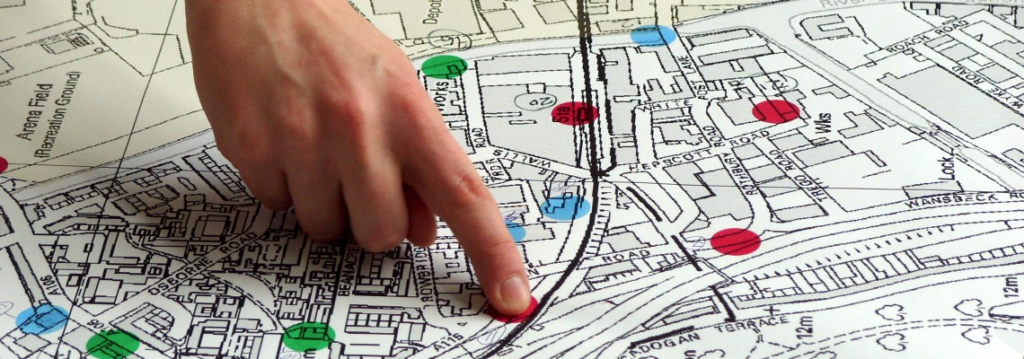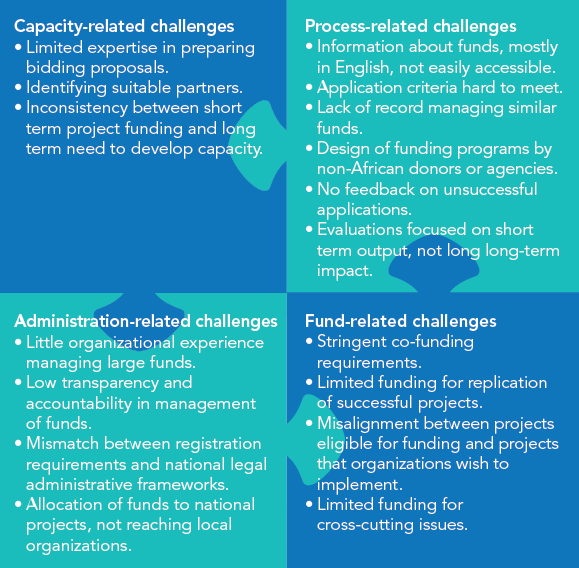Why is it relevant?
No matter what type of Citizen Observatory you wish to set up, you will need sufficient funding to ensure its successful start and its continuation. Significant effort goes into creating an engaged community of participants and setting up the technical infrastructure that supports the different phases of the environmental monitoring process. Both have financial implications.
How can this be done?
Citizen Observatories employ different operational models, depending on their scope and their expected structure, geographical scale, duration and participation. These elements determine the form of funding that can be used to finance the Citizen Observatory.
Lessons learned from the AfriAlliance project
The AfriAlliance project highlighted four key types of challenges facing small-scale projects looking to secure funding:
- Capacity-related challenges,
- Administration-related challenges,
- Fund-related challenges,
- Process-related challenges.
Due to these challenges, local and small-scale actors often need to develop innovative approaches to secure funding.
Image: AfriAlliance Policy Brief #2
Useful Resources
WEBSITE: European Commission funding opportunities, such as Coordination and Support Actions (CSA), Research and Innovation Actions (RIA), Responsible Research and Innovation (RRI) and specific thematic calls.
WEBSITE: Platforms for crowdfunding citizen science research in search of funding, such as Kickstarter, Indiegogo, Rockethub and Experiment.
SCIENTIFIC PAPER: “Crowdfunding Scientific Research: Descriptive insights and correlates of funding success” presents a review of dedicated platforms for crowdfunding research and highlights differences between crowdfunding and traditional funding mechanisms for research.
POLICY BRIEF: This policy brief from the DITOS project analyses existing funding practices across a range of citizen science projects.
You may also be interested in:
I want to set up a Citizen Observatory…
…by identifying a shared issue
This work by parties of the WeObserve consortium is licensed under a Creative Commons Attribution-ShareAlike 4.0 International License. ![]()


